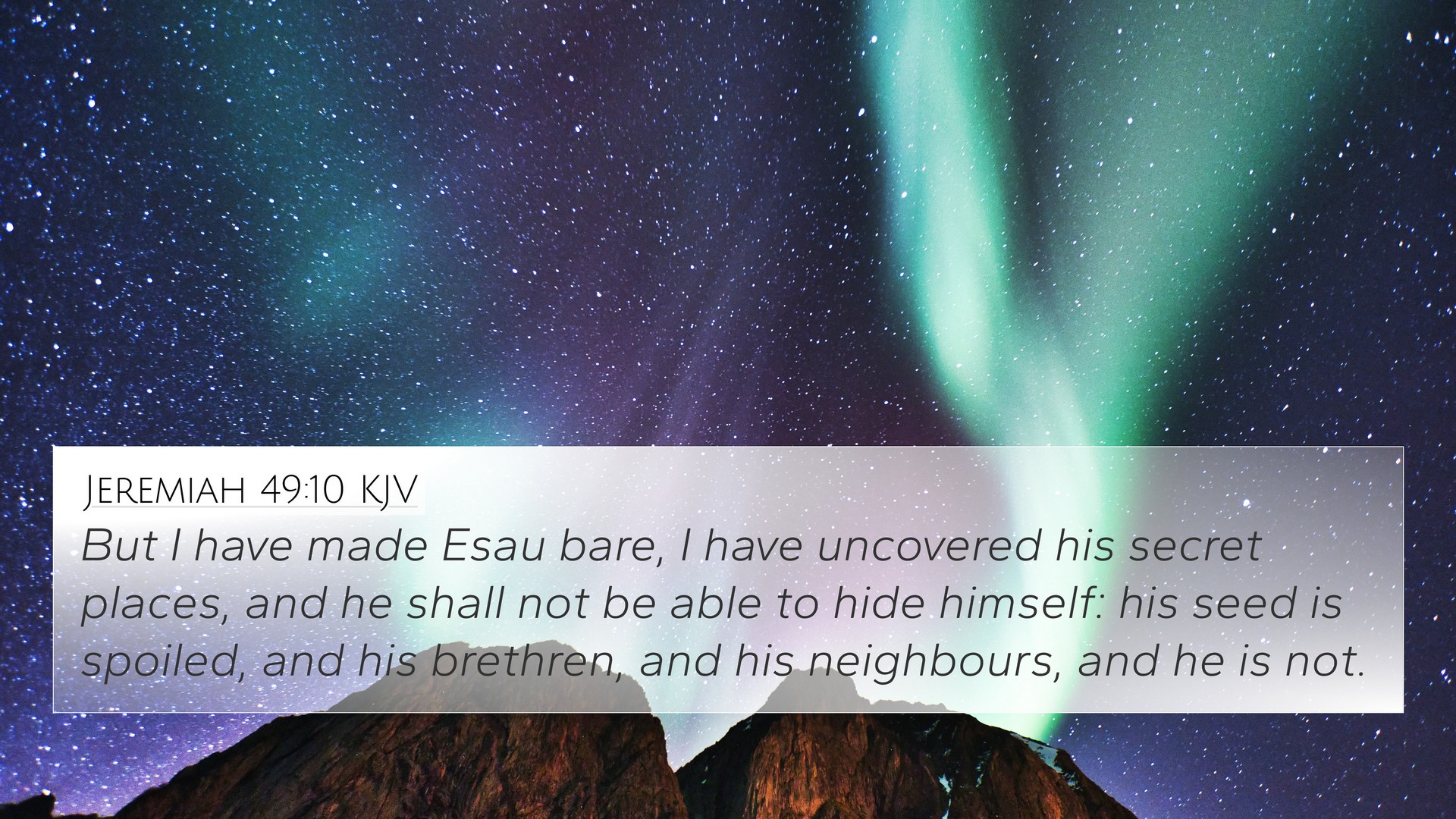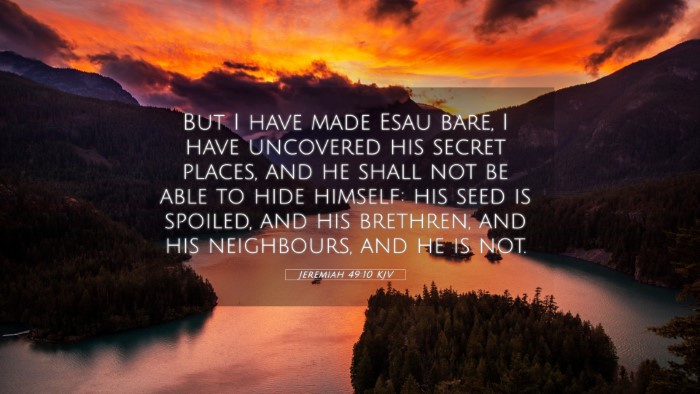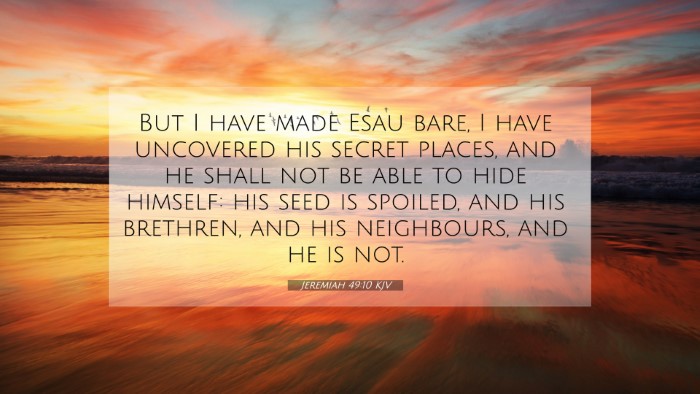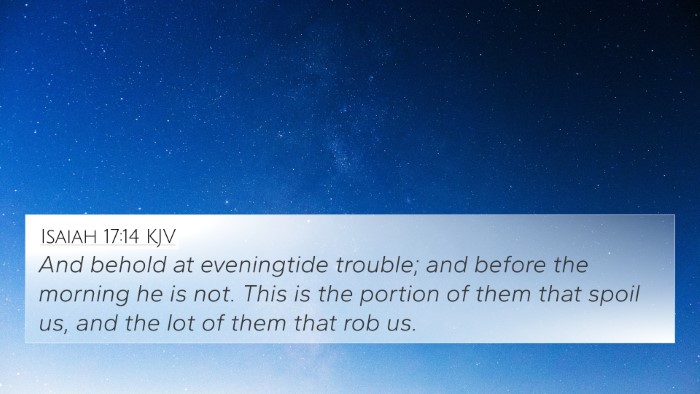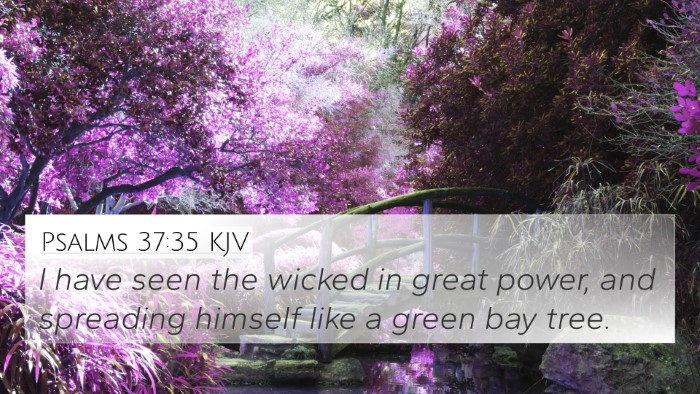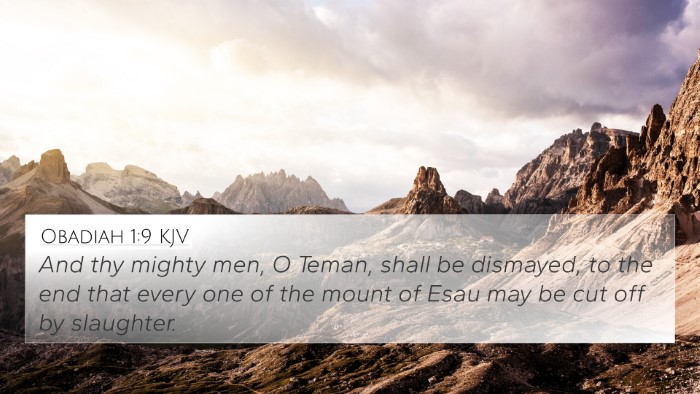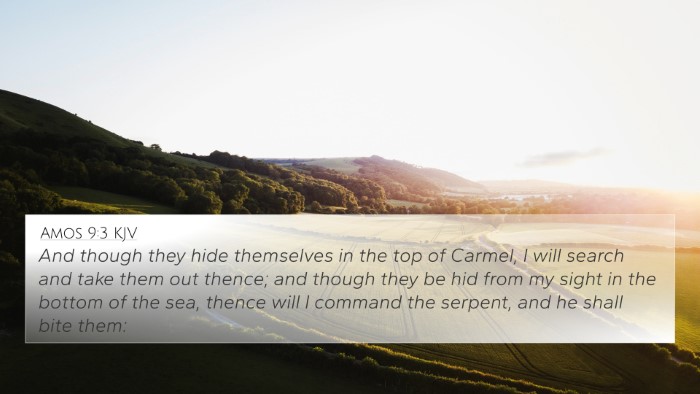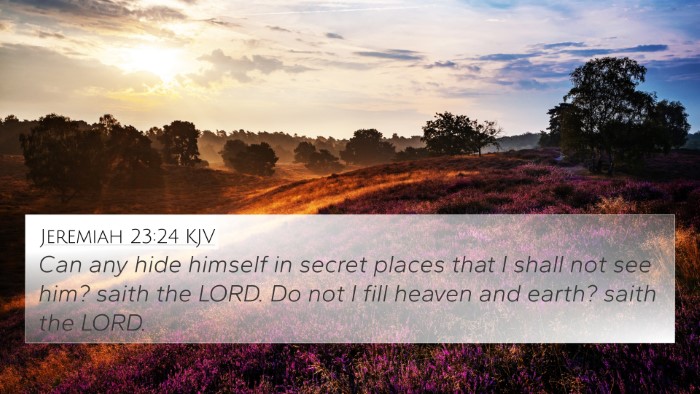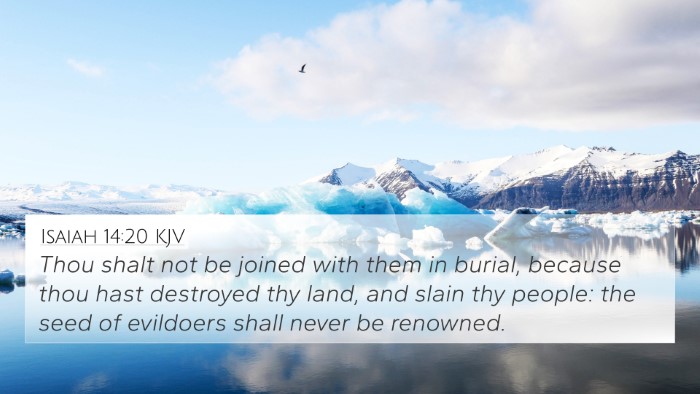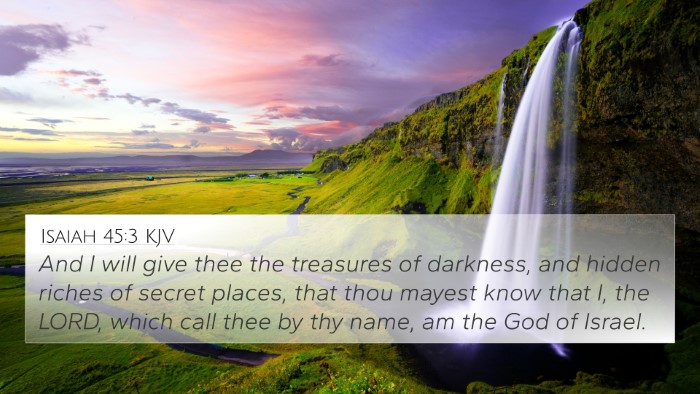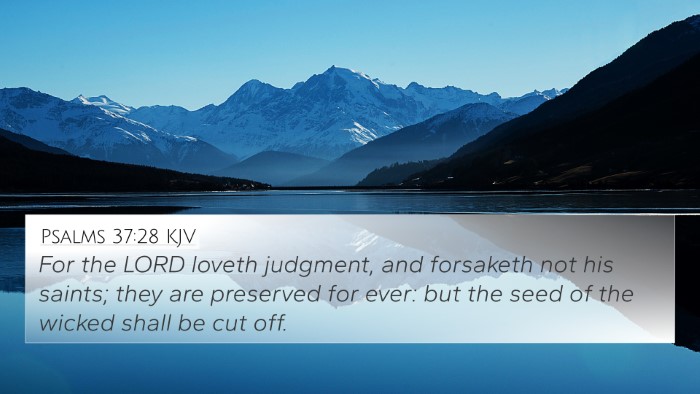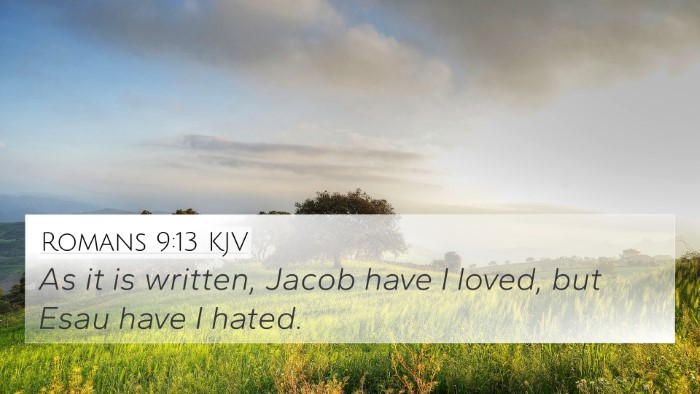Understanding Jeremiah 49:10
Verse Overview: Jeremiah 49:10 states, "But I have made Esau bare, I have uncovered his secret places, and he shall not be able to hide himself: his seed is spoiled, and his brethren, and his neighbors, and he is not." This verse speaks to God's sovereign judgment and the vulnerability of Edom, descendants of Esau.
Meaning and Interpretation
This verse reveals a profound insight into the nature of God's judgment against nations that oppose His will. The phrase "made Esau bare" indicates the divine act of exposing the hidden sins of the Edomites. The commentaries provide a deeper understanding:
- Matthew Henry: Henry explains that this verse highlights God's omniscience and His ability to unveil the most concealed secrets of individuals and nations. The disgrace of Edom serves as a warning about pride and hostility against God's people.
- Albert Barnes: Barnes focuses on the inevitability of judgment. Edom's attempts to hide their wrongdoing are futile against God's probing gaze. The mention of "secret places" underscores the idea that nothing is hidden from God.
- Adam Clarke: Clarke reflects on the historical context, noting that this prophecy was fulfilled during the conquests of Israel and their neighbors. He emphasizes that the judgment spoken of was not only physical but also spiritual in nature, reflecting Edom's fall from grace.
Thematic Connections and Cross-References
This verse encapsulates several themes within the Bible, particularly concerning God's justice, the futility of hiding from Him, and the inevitable rise and fall of nations. Below are some key connections:
- Obadiah 1:6: This verse discusses the complete destruction of Esau's territory, aligning with Jeremiah's declaration of exposure.
- Malachi 1:3: God expresses His love for Jacob and hatred for Esau, further confirming the theme of divine choice and judgment.
- Isaiah 34:5-6: These verses depict the judgment of Edom, linking to the theme of retribution for national sins.
- Proverbs 15:3: "The eyes of the Lord are everywhere, keeping watch on the wicked and the good," echoing the idea of divine oversight.
- Psalm 139:7-10: This passage emphasizes that there is nowhere we can hide from God's presence—mirroring the sentiment of Jeremiah 49:10.
- Ezekiel 25:12-14: God's judgment against Edom for their actions against Israel correlates directly with Jeremiah's prophetic warning.
- Romans 9:13: This New Testament reference reiterates God's sovereign choice between Jacob and Esau, affirming the lasting implications of their legacy.
Learning from Jeremiah 49:10
Jeremiah 49:10 serves as a critical reminder of the importance of acknowledging God's sovereignty in all matters, including the affairs of nations. There are several key takeaways:
- Accountability to God: Just as Edom could not hide their sins, neither can individuals or nations today. God sees all.
- God's Judgments are Sure: The Biblical account assures believers that God's judgment is delayed but never denied.
- Hope for the Oppressed: For God's people, this promise of judgment against enemies provides comfort and assurance of divine justice.
Conclusion
Jeremiah 49:10 not only details the fate of Edom but also serves as a timeless lesson about God's omniscience and justice. It invites believers to reflect upon their actions and the inevitable reality that nothing escapes God's notice. In studying this verse through the lens of public domain commentaries, we find a wealth of insights that connect this prophecy to overarching Biblical themes of judgment, justice, and the nature of God.
Cross-Referencing and Further Study
Utilizing tools for Bible cross-referencing can deepen the understanding of this verse:
- Explore connections between Old and New Testaments for comprehensive insights.
- Engage in a cross-reference Bible study that links themes between various prophetic books.
- Use a Bible concordance to find verses that address God's judgment on nations.
- Compare the prophecies of different prophets to see how they interact and provide context.
- Study inter-Biblical dialogue to gain a broader understanding of similar themes, like the fate of the faithful versus the unfaithful.
